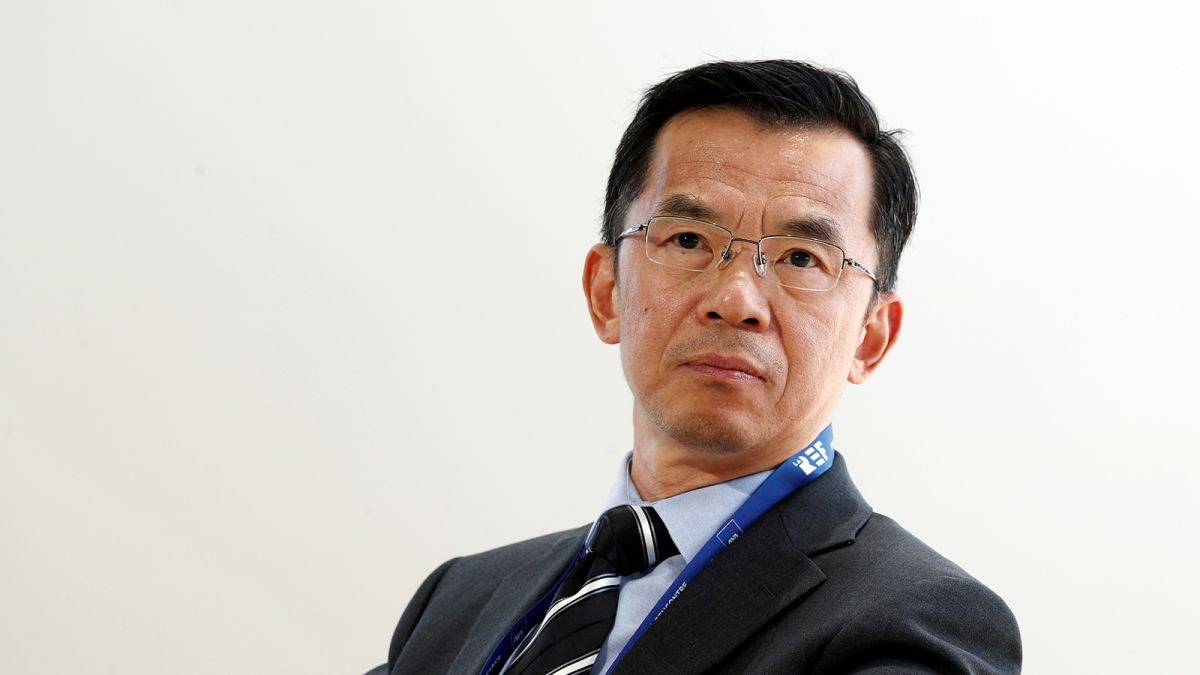EU to discuss 'reassessed strategy' for China after Crimea comments
The EU Foreign Affairs Council will also negotiate "a strong position", per Borrell, on the need for China to make clear of its stance on the matter.
-

Chinese Ambassador to France Lu Shaye during an event in Paris, France in 2019 (Reuters)
According to EU foreign policy chief Josep Borrell, EU foreign ministers are due to discuss ties with China alongside the necessity for a "reassessed strategy" during a convention scheduled for Monday, as a result of remarks made by Chinese Ambassador to France Lu Shaye about Crimea and former Soviet republics.
In an interview with French broadcaster LCI, Lu Shaye called Crimea "originally Russian, but then [Soviet leader Nikita] Khrushchev gave it to Ukraine," adding that former Soviet republics "do not have a valid status in international law, because there is no international agreement that would specify their status as sovereign countries."
Read more: EU to train 30,000 Ukrainian troops, doubling former pledge
Frustration ensued across the EU bloc following the comments, with Borrell confirming that this matter will be brought up during the meeting on Monday in "the framework of the China issue" adding that the European Council "will start discussing about China in order to prepare the European Union in June maybe that we will reassess and recalibrate our strategy towards China".
The EU Foreign Affairs Council will also negotiate "a strong position", per Borrell, on the need for China to make clear of its stance on the matter.
"We will start assessing how do we deal with China, how to recalibrate out strategy with China. We have been talking a lot about China the last days, but we will have to continue discussing about China, because it's one of the most important issues of our foreign policy," Borrell stated.
On account of that, the topic of EU-China relations was confirmed by European Council President Сharles Michel to be part of the agenda on Monday.
In January of this year, Ukrainian president Volodymyr Zelensky's advisor, Andriy Yermak, rejected the idea of a Ukrainian victory without capturing Crimea at the World Economic Forum in Davos. “This is absolutely unacceptable,” Yermak said, adding that victory means "restoring Donbass and Crimea.”
In order to face Russia, Ukraine has repeatedly asked the US for longer-range weapons, including rocket artillery and guided munitions fired by fighter planes and drones. The United States provided Ukraine with the High Mobility Artillery Rocket System in the summer, but refuses to deliver missiles capable of reaching 300 miles, "putting all of Crimea at risk."
Crimea became part of Russia following a referendum held in March 2014, in which nearly 96% of Crimeans voted for accession to Russia.
While Ukraine still considers the peninsula to be its own territory, Russia has repeatedly stressed that the decision made by the Crimean people was in full compliance with international law and the UN Charter.
According to Russian President Vladimir Putin, the Crimea issue is "closed".

 3 Min Read
3 Min Read








